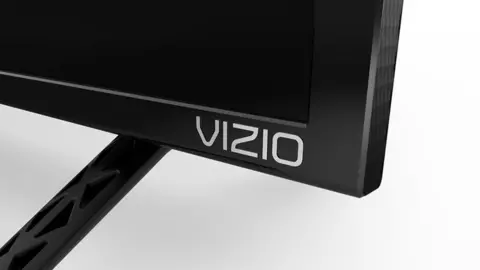TV may invite viewer to sue its manufacturer
 Vizio
VizioConsider it a different kind of on-screen courtroom drama. Owners of Vizio Smart TVs may soon see a message inviting them to take legal action against the manufacturer.
California-based Vizio, one of America’s leading TV brands, was in 2015 caught gathering large amounts of user data, which was then passed on to advertisers.
It settled with the US trade regulator for $2.2m (£1.7m), but still faces a class action lawsuit involving potentially millions of customers.
The company could now be forced to inform potentially affected owners directly – via a pop-up message on-screen.
The BBC understands the note would tell the customer about the legal action, and how to find out if they can be involved. If the lawsuit is successful, customers could receive a portion of the damages won. Only affected customers in the US are eligible to join the lawsuit.
According to US law, notices about class action lawsuits – the term given to a case that has affected a large number of people – have to be delivered in the most effective way that is “practicable under the circumstances, including individual notice to all members who can be identified through reasonable effort”.
Typically, this might be through an email or letter, or perhaps advertising – but since the Vizio televisions sets are connected to the internet, attorneys believe an on-screen message would be an effective option.
However, the idea “requires testing to make sure any TV notice can be properly displayed and functions as intended”, according to court papers first obtained by The Hollywood Reporter.
Both parties in the case have until 3 October to present wording and a delivery method that is “workable and satisfies applicable legal standards”.
If happy, the court would then decide when the message should be sent out to the potentially affected customers – which could number as many as 11 million.
The 2015 ProPublica investigation discovered Vizio had been logging viewing habits and selling that information on to data brokers.
At the time, the firm said: “Non-personal identifiable information may be shared with select partners … to permit these companies to make, for example, better-informed decisions regarding content production, programming and advertising.”
The Federal Trade Commission, however, took a dim view. It settled with the firm for $2.2m on the understanding it would stop the practice, and in future more prominently tell users how data was being collected.
“This settlement stops Vizio’s unauthorised tracking, and makes clear that smart TV makers should get people’s consent before collecting and sharing television viewing information.”
_____
Follow Dave Lee on Twitter @DaveLeeBBC
Do you have more information about this or any other technology story? You can reach Dave directly and securely through encrypted messaging app Signal on: +1 (628) 400-7370
